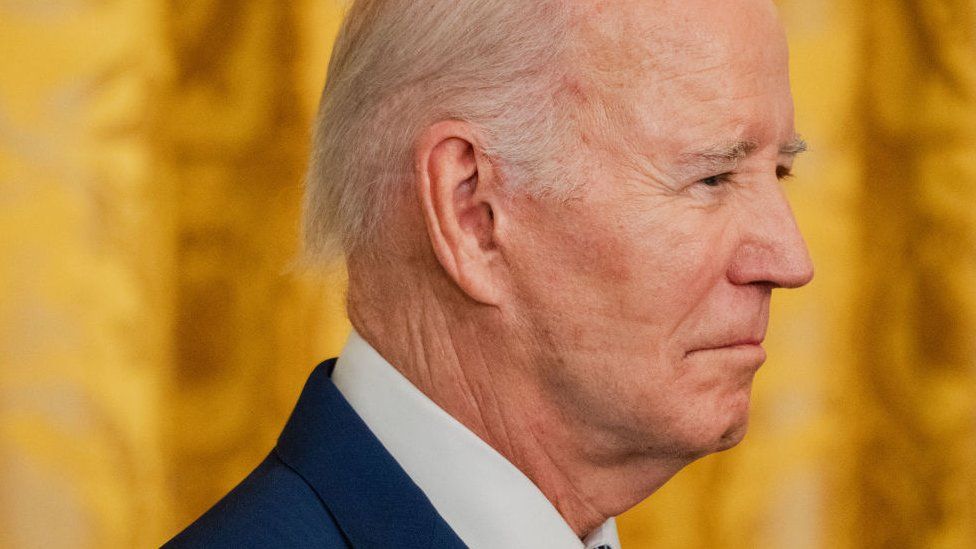Sleep apnoea, a common disorder in which breathing is repeatedly interrupted while you sleep, is being treated by President Joe Biden with a medical device.
The White House reports that Mr. Biden, who is 80 and the oldest president in US history, uses a CPAP machine.
The medical update was made public on Wednesday after reporters noticed marks on his face from the nighttime breathing mask.
Doctors estimate that 30 million Americans suffer from sleep apnea.
During sleep, a CPAP machine (continuous positive airway pressure) gently pumps air into a mask placed over the mouth and nose, keeping the airways open.
The President has disclosed his history of sleep apnea in thorough medical reports since 2008, according to a statement from White House spokesman Andrew Bates. .
According to him, "He used a CPAP machine last night, which is common for people with that history.".
Officials from the White House later acknowledged that he had been using the CPAP machine for a few weeks.
With up to one billion people affected worldwide, sleep apnoea is one of the most common sleep disorders. However, sleep apnoea can also affect young adults. Studies indicate that the condition worsens with aging.
Its signs include episodes where breathing is momentarily stopped while sleeping, gasping for air while sleeping, loud snoring, and fatigue even after a full night's rest.
The risk of accidents is significantly increased, according to doctors, and this can lead to poor memory and concentration.
According to experts, people who have loud snoring, nighttime breathing pauses, excessive daytime sleepiness or fatigue, or sudden awakenings should see a doctor.
- If you are obese, make an effort to lose weight.
- Try using a specialty pillow to help you side sleep.
- Quit smoking.
- Avoid consuming too much alcohol, particularly right before bed.
- Sleeping pills shouldn't be taken unless prescribed.
A sleep clinic may be required to treat more severe sleep apnoea. Using a CPAP machine, which gently pumps air into a mask placed over the mouth and nose while you sleep, can help keep your airways open.
NHS UK, as a source.







